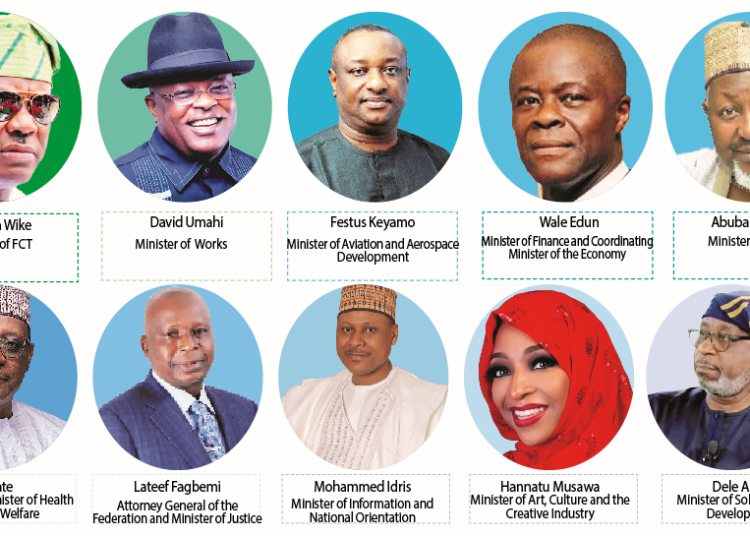As President Bola Tinubu assigns portfolios to recently cleared ministers, Nigeria stands at a critical juncture that demands immediate attention and transformative leadership.
The anticipation surrounding the ministerial list is understandable, considering the myriad challenges that the country faces. With an expansive population struggling with multidimensional poverty and alarming security concerns across the nation, the incoming ministers have an uphill battle ahead. They have their jobs cut out for them.
The National Bureau of Statistics’ revelation that 133 million Nigerians live in multidimensional poverty underscores the urgency for a change.
To put it in proper perspective, this figure is bigger than the population of the United Kingdom which is 67 million and several European countries .
This statistics serve as a stark reminder of the pressing need for effective policies and initiatives to uplift millions from destitution.
Equally pressing are the security challenges that persist across all regions of the country.
According to data sourced from the council on foreign relations and National Security Tracker (NST), 4,545 people were killed by non-state actors, while 4,611 others were kidnapped in 2022. The story has not changed this year.
It is indisputable that Nigeria stands on the precipice of change. The challenges at hand are grave and complex, demanding solutions that are not just politically motivated but also technically sound.
Unfortunately, the recent ministerial list has garnered disappointment due to its perceived inclination towards political appointments rather than technocratic expertise.
For the nation to truly move forward, it is crucial that the ministers appointed possess the necessary competence and vision to navigate these critical issues.
While some appointments raise eyebrows, such as assigning former governors to the defense ministry despite the security challenges in their respective states especially Zamfara which is regarded as the epicenter of banditry in the country.
Ministers-designate Begin Documentation Ahead Monday’s Swearing-in
However ,there are also bright spots. The appointment of the Minister of State for Gas Resources and Marine,Blue Economy aligns with Nigeria’s potential as a global gas reservoir.
It is instructive to note that Nigeria boasts substantial gas reserves, yet harnessing these reserves has lagged behind the utilization of its oil reserves. A strategic focus on this sector could undoubtedly diversify Nigeria’s revenue streams.
Similarly, Nigeria’s blue economy potential is largely untapped despite its vast coastline and maritime area. With rich resources and a huge population dependent on coastal regions, the blue economy represents an enormous opportunity for economic growth and job creation.
Indeed, leveraging these resources would not only reduce dependence on crude oil but also contribute to sustainable development and environmental protection.
As the new ministers assume their roles, the expectation is for them to hit the ground running.
In the considered opinion of this newspaper, Nigeria cannot afford the luxury of time, and the gravity of the challenges necessitates immediate action. Rather than indulging in political maneuvering, the ministers must prioritise the tasks at hand.
In our view, President Tinubu must set one-year targets for the ministers and anyone found wanting should he shown the way out.
Needless to say, the country needs a results-driven approach that translates into meaningful changes in the lives of its citizens.
Consequently, Nigeria’s future is at a crossroads, demanding nothing short of visionary and transformative leadership. The challenges of poverty and security are monumental, requiring a blend of political acumen and technical expertise to navigate. The recent ministerial appointments, though met with mixed reactions, provide an opportunity to reshape the nation’s trajectory.
We insist that President Tinubu must ensure that the appointed ministers align with the gravity of the challenges and demonstrate their commitment to delivering positive change. With a strategic focus on sectors like gas resources and the blue economy, Nigeria can diversify its revenue streams and create a more resilient economy.
The citizens, who have endured much, deserve nothing less than an all-out effort from their newly appointed leaders. Accountability, transparency, and a sense of urgency will be the guiding principles on this journey towards a more prosperous Nigeria.





